With more than 500 acres of beautiful land, restored log buildings, and six museums, Huntington’s Heritage Farm Museum and Village celebrates Appalachian roots.
From our Spring 2013 Issue
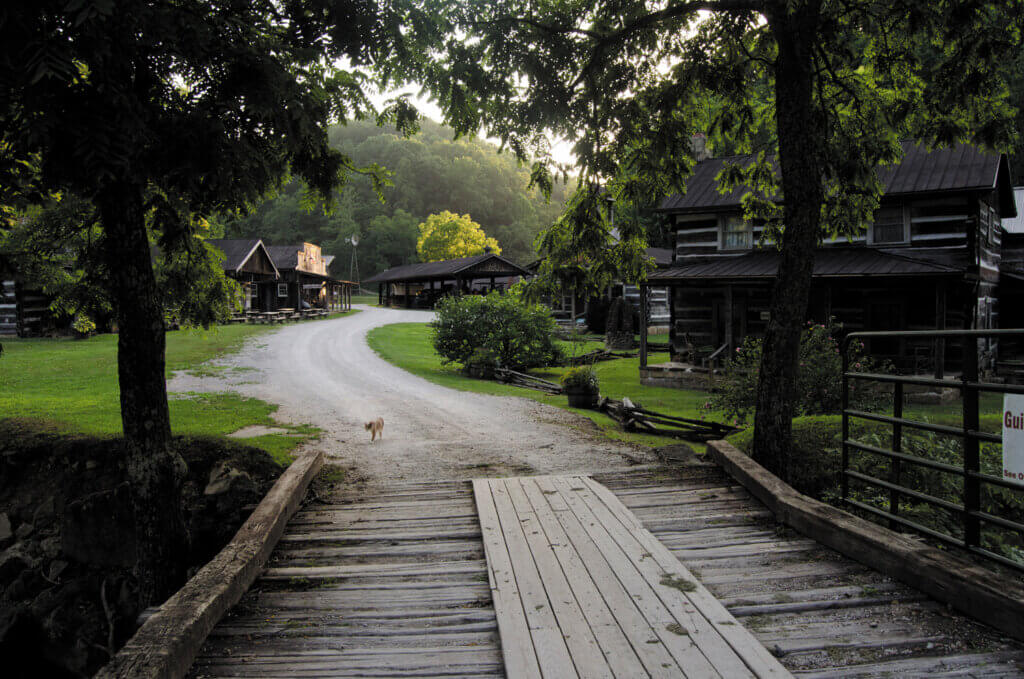
written by Mary Lauren Weimer
photographed by Nikki Bowman
It’s easy to imagine that unfamiliar drivers along Huntington’s Harvey Road might think they’d not only gotten lost, but traveled back in time to the 19th century. That’s because just miles from downtown, Heritage Farm Museum and Village offers visitors a unique, historical Appalachian experience complete with museums filled to the brim with displays and antiques not found elsewhere in the region.
For the past 40 years, Mike and Henriella Perry have worked to make a monument to Appalachian history come to life, and the results are impressive. While Heritage Farm may look like a vast historical playground today, it came from humble beginnings.
In 1973, the Perrys bought a 150-acre farm on the outskirts of Huntington. It was while renovating the property’s dilapidated farmhouse that they got a glimpse into the past. The couple—along with their three young children—had recently made a life-changing decision: to move from their brick home on Huntington’s South Side to the farm, where the only dwelling was a structure that lacked heat, electricity, and indoor plumbing. People wondered, “What are they thinking?” but for Henriella, the answer was simple. “I knew our family would be happier out here,” she says.
After removing layers of wallboard inside the house, a hand-hewn log emerged. The family marveled at its size and at the effort it would have taken not only to create it, but to lift and place it onto the site. That discovery prompted an earnest exploration of Appalachian history. As they began to collect furniture, farm tools, cooking ware, and other artifacts, Mike and Henriella became ambassadors of their heritage. “These remarkable men and women came over the mountains, and with just their own two hands, built their homes, raised all of their own food, and made their clothes. They were some of the most remarkable people who have ever lived in this great country,” Mike says.
The Country Store Museum, sometimes known as the General Store, was the hub of pioneer life. The Country Store at Heritage Farm was the first building of the project completed.
Over the years, the Perry family transformed their property into a tourism destination. The now more than 500 acres of history and entertainment first opened to visitors in the 1990s. “Our vision for the farm is to ensure that all of our guests, whether they’re coming to the museum or to stay in one of the homes, leave with a better appreciation and understanding of why we’re so proud of our Appalachian heritage.” Over the decades, the couple has welcomed guests for festivals, field trips, reunions, weekend getaways, weddings, corporate events, and other gatherings.
Visitors experience the history in many forms. Six stand-alone museums offer glimpses into early Appalachian pioneer life, and hands-on activities abound for both the young and old. The Progress Museum shows domestic life in 1850, 1900, and 1925 with displays covering everything from an early arcade to large model train layouts. The steam engines at Heritage Farm are of particular interest to many visitors. Mike says, “You can’t talk about West Virginia history without talking about trains.”
The Progress Museum displays domestic life between 1850 and 1925. Displays include an early arcade, soda fountain, miniature amusement park, and large model train layouts.
The Industry Museum invites guests to explore advancements in regional industry and commerce like timber and coal; and the Transportation and Mill Museum displays a collection of early automobiles, trucks, and even a stagecoach. Other exhibits emphasize the realities of pioneer life and labor. There are the Shingle and Saw Mills and Blacksmith Shop on the grounds, and for more fun, a Farm Zoo and a children’s Activity Barn, where kids can play with a typewriter and learn to milk pretend cows. “I love watching the children play with the old typewriter because when they push the E, they can see the arm go up and watch the process. They can’t explain how an E appears on their computer, but they can see how it works with that typewriter. I love those little moments of discovery,” Mike says.
Many attractions are open to visitors year-round, but Heritage Farm also holds special monthly events. “Way Back Saturdays,” for example, are generally held on the first Saturday of every month. “We’ll bring in artisans who blow glass or use a wood fire pottery kiln, and in April 2013, we’re hosting groups who do period reenactments,” says Mike.
- 1. and 4. The Heritage Museum is the newest museum, offering a look at washing machines, churns, a barber shop, and dental and medical offices. 2. The Activity Barn is a popular spot for school field trips and offers hands-on learning focused on pioneer homes and schools. Children can play school, learn about how food was produced, and even take turns pretending to milk a cow. 3. The Transportation & Mill Museum’s displays include a Conestoga wagon, 1908 electric truck, later Model T Ford autos, steam engine exhibits, and more.
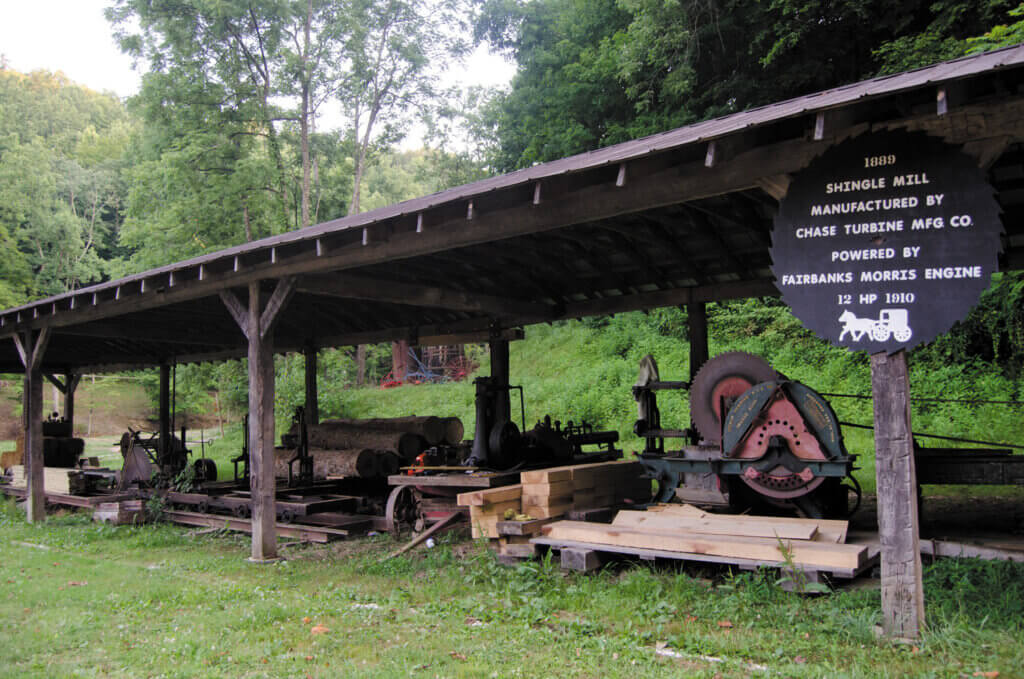
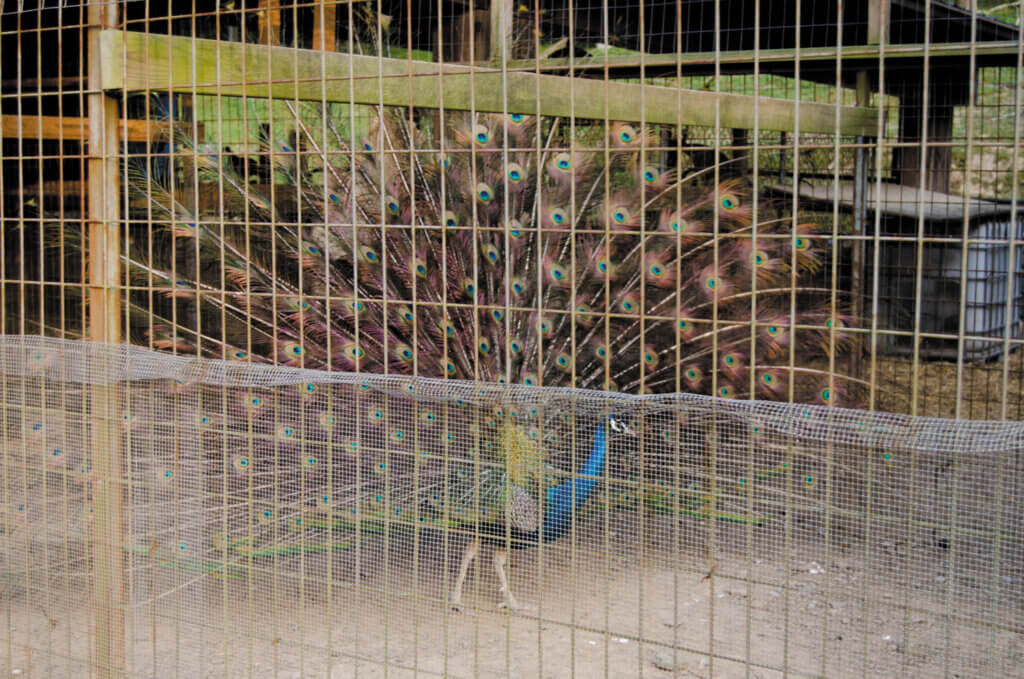
5. The Shingle Mill & Saw Mill show guests how our ancestors cut and shaped the wood they used to build their homes. 6. In the Farm Zoo, guests see their favorite critters up close and learn how animals played an important role in early Appalachian life.
Guests seeking a lengthier farm experience can choose from beautiful and antique-filled homes, each with fully equipped kitchens. Heritage Farm’s five inns hark back to a simpler time, before the buzz of cell phones or televisions. Instead, stimulation comes from the views from front porch rocking chairs, a game of checkers, or a hike along the property’s five miles of trails. The farm’s Strawberry Inn is a popular retreat for newlyweds—perhaps those who’ve just been married in Heritage Farm’s 100-seat log church. Also on the property, the Woodbury Inn offers seclusion on a wooded hillside. A swimming pool is available to all guests staying in summer.
One of the newest ventures is the 9,000-square-foot Barn Conference and Retreat Center—an 1800s dairy barn that can accommodate large gatherings like camps and church retreats and includes five meeting rooms, two large bunk rooms, a kitchen, and bathroom facilities.
While the farm is located in a rural setting, it’s just a few miles from downtown Huntington and Marshall University. It’s also a short distance from Beech Fork Lake State Park and shopping at the Huntington Mall. No matter the reason for visiting Heritage Farm, the Perrys hope the property will inspire guests and, in particular, young people. “We hope they will dream, think of what they might be, and realize that they can
be anything they aspire to be, just like the people who came before us,” Mike says. “Within our blood is all of that same spirit that created this great place we call West Virginia.”
Heritage Farm Museum and Village 3300 Harvey Road, Huntington, WV 25704; 304.522.1244; heritagefarmmuseum.com

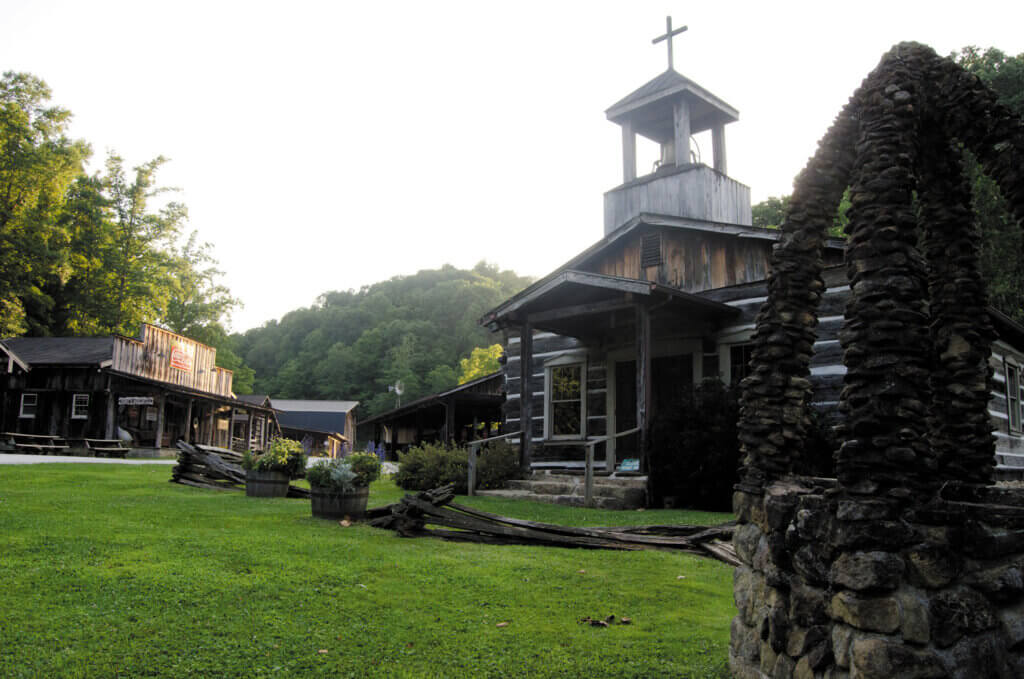
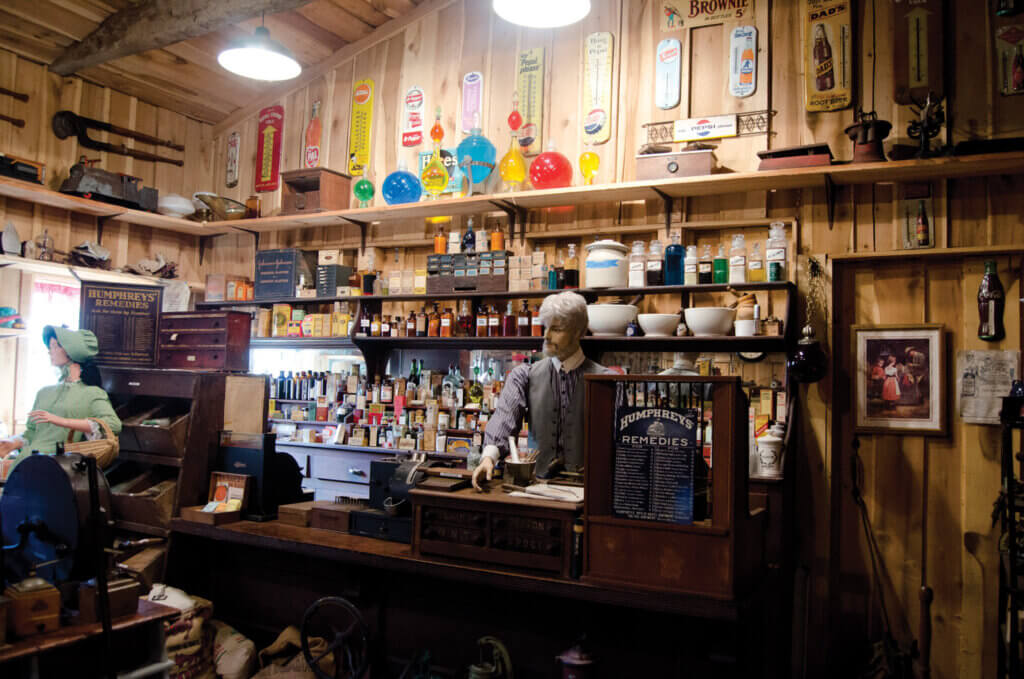
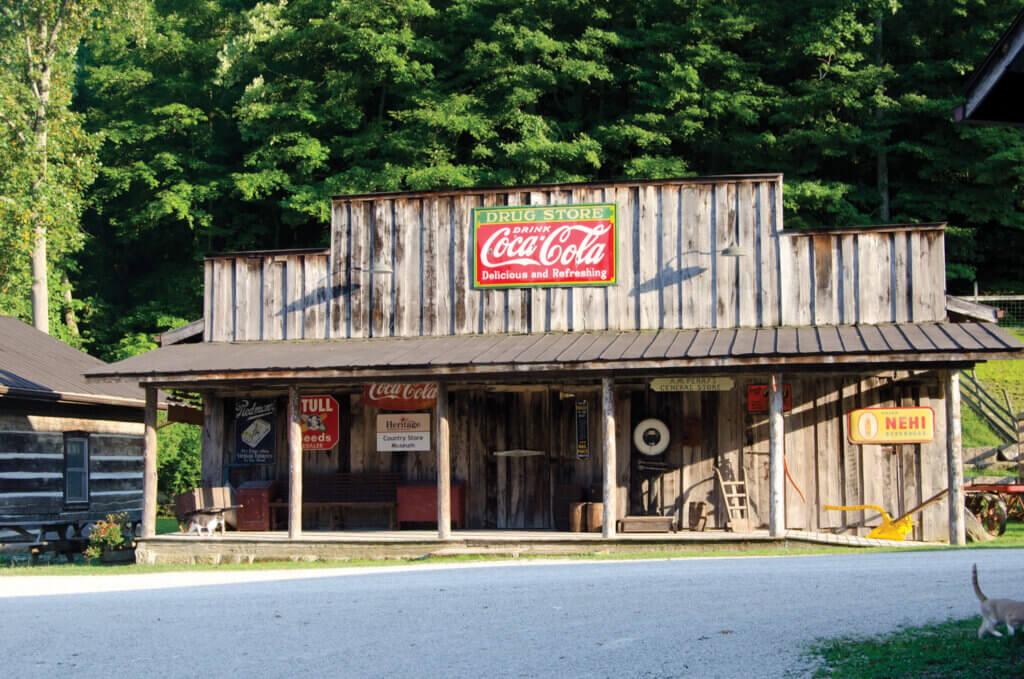


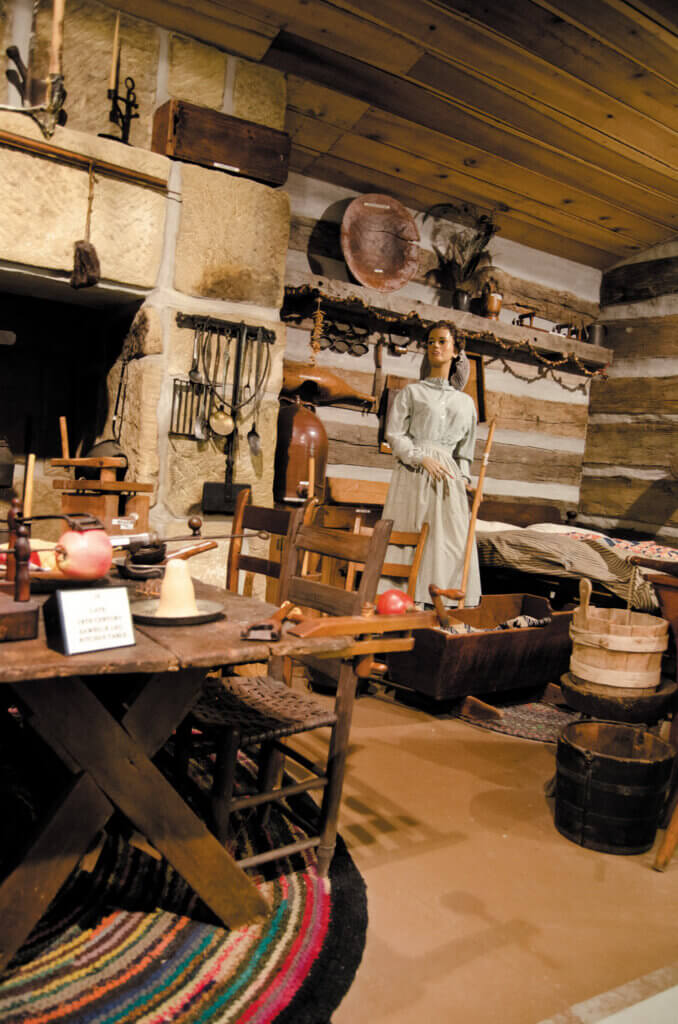
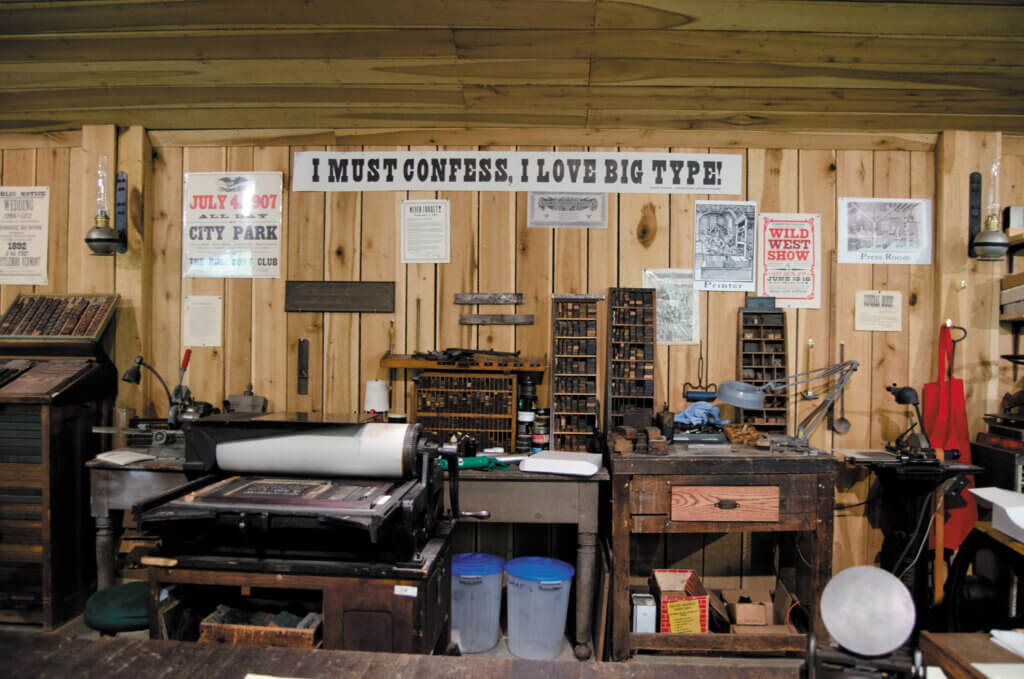
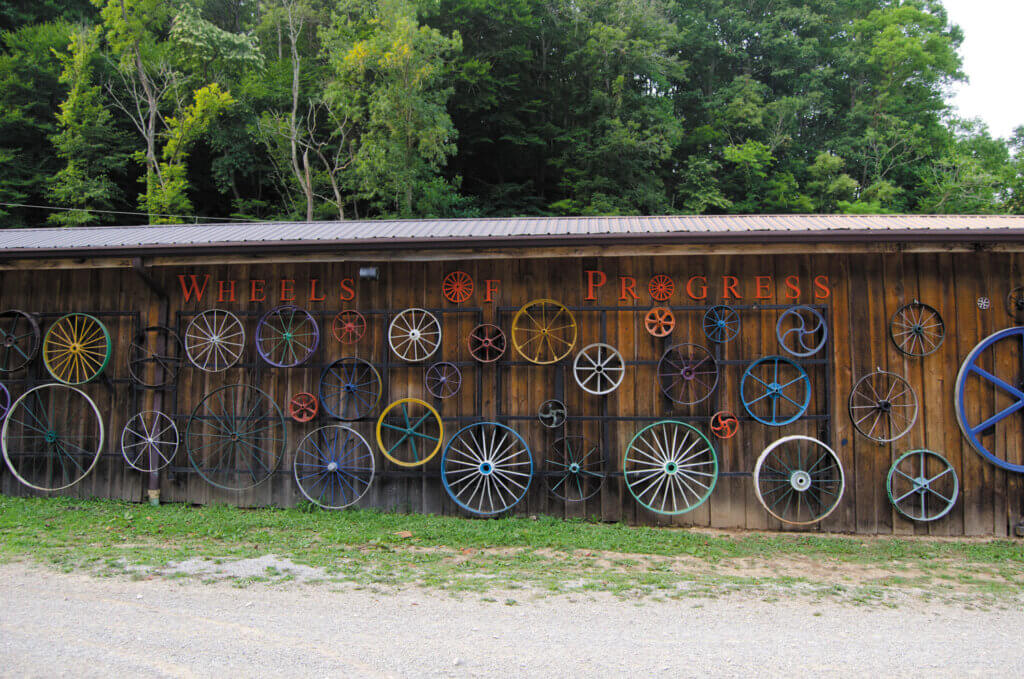

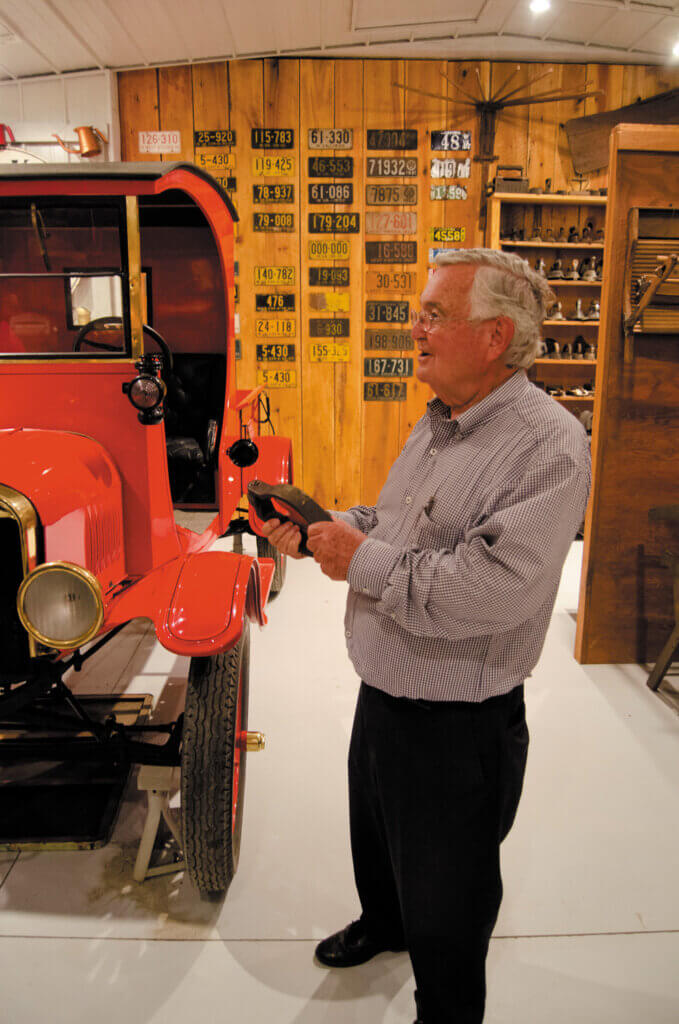
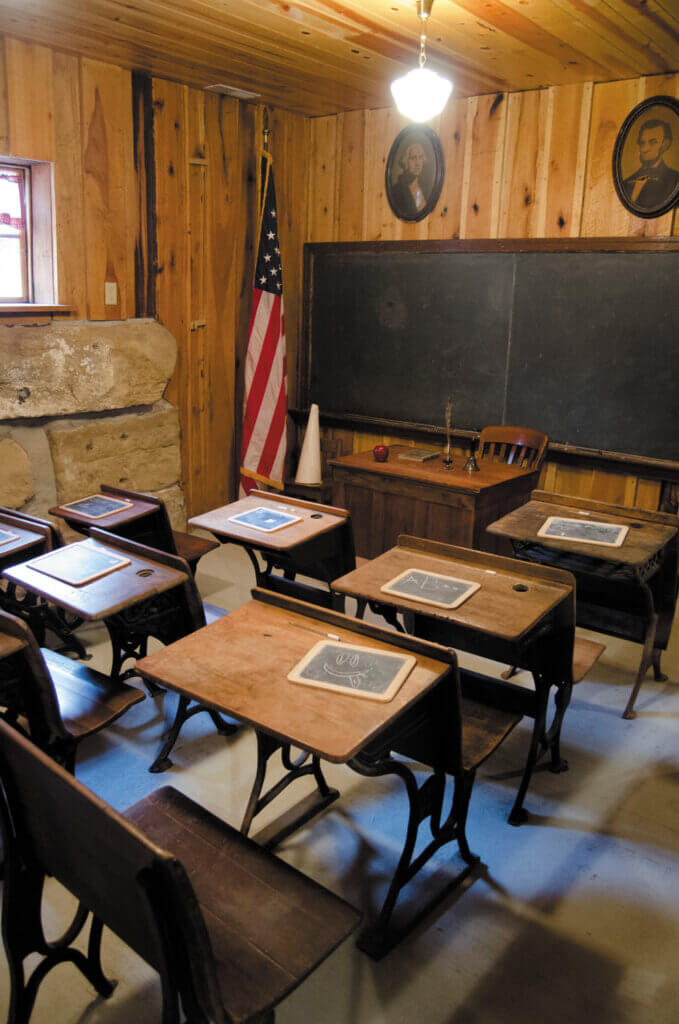
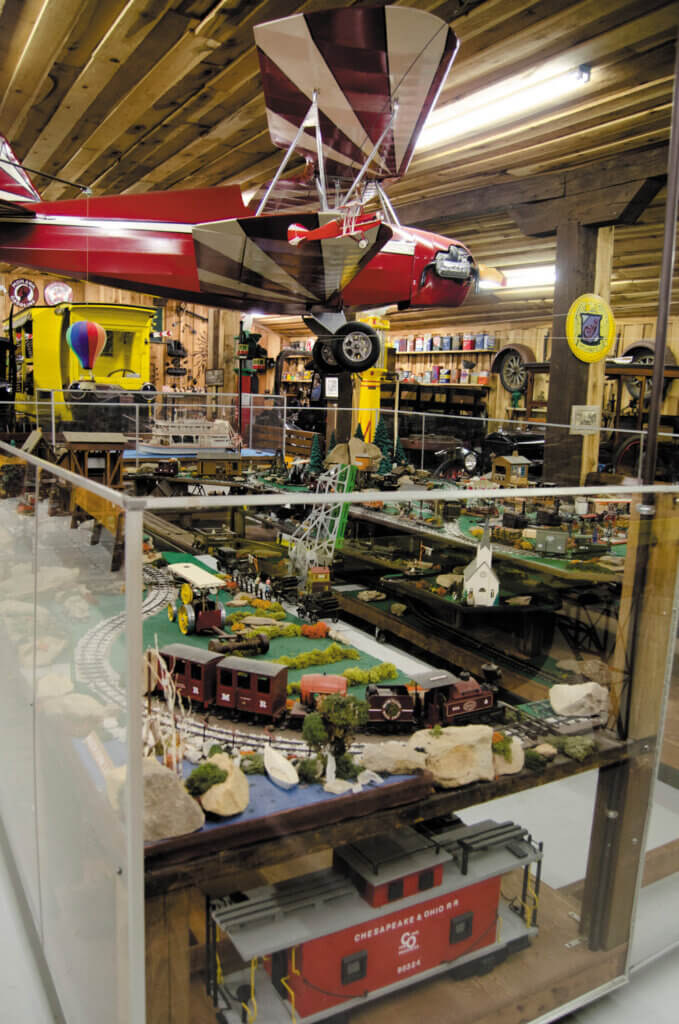
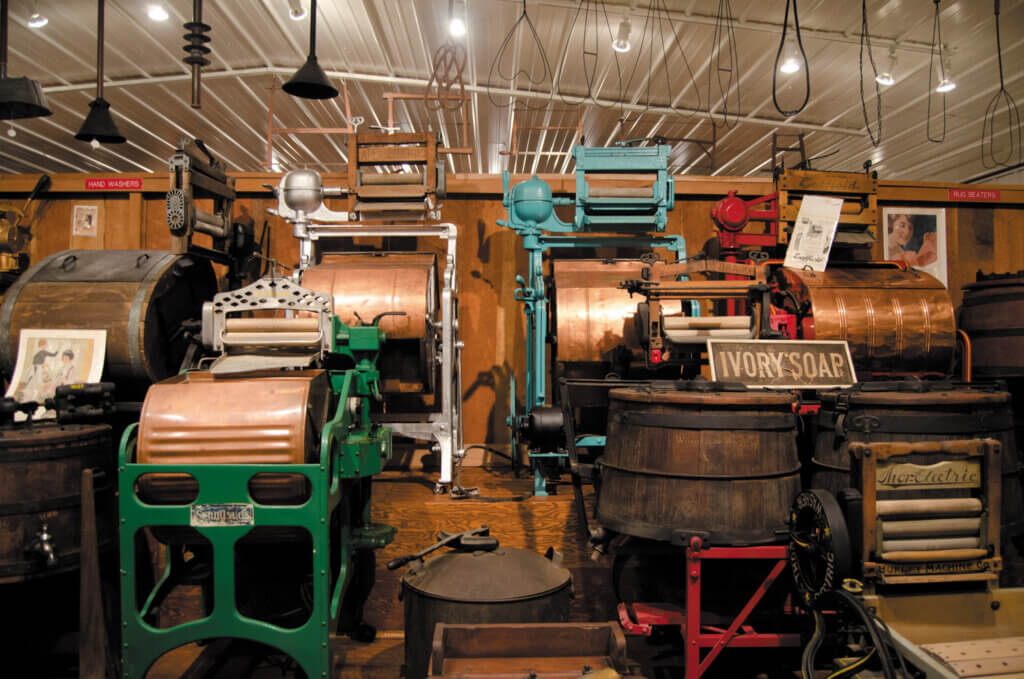








Leave a Reply